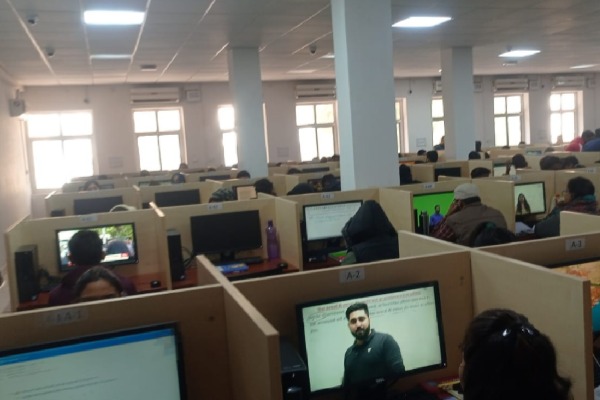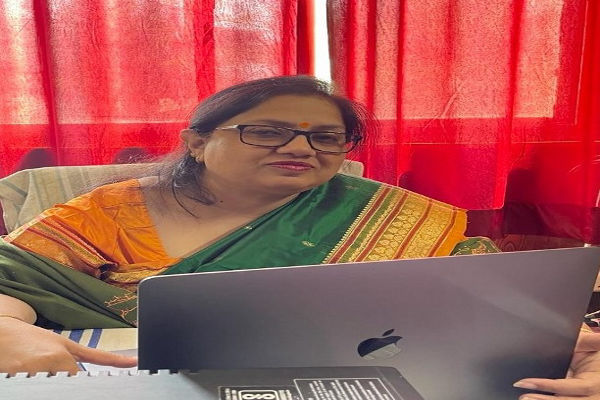
Exploring MBA After BCA: Salary Insights & Career Prospects
Choosing the right postgraduate course after completing a Bachelor of Computer Applications is an important career decision for many students. One option that stands out is MBA after BCA. This combination offers a mix of technical and managerial skills that can create strong career growth opportunities. Graduates with this academic path can move into roles that require both IT knowledge and business expertise. In today’s job market, companies value professionals who can handle technology and strategy together. This blog will provide salary insights and career prospects for students considering MBA after BCA so they can make informed academic and professional choices.
Table of Contents
- Understanding MBA after BCA
- Why MBA after BCA is a Smart Choice
- Career after BCA and MBA
- Salary Insights for MBA after BCA Graduates
- Scope of MBA after BCA in India
- Skills That Employers Value
- Choosing the Right Specialisation
- Conclusion and Career Advice
- Frequently Asked Questions
Understanding MBA after BCA
MBA after BCA combines a strong technical background with advanced business management training. Students first build a foundation in computer applications and software development through their BCA degree. An MBA then adds expertise in areas like finance, marketing, operations, analytics, and human resource management.
This blend prepares graduates to handle both technical project execution and strategic decision making. According to the All India Council for Technical Education, management graduates with a technology background often achieve higher placement rates compared to those without IT expertise.
Why MBA after BCA is a Smart Choice
Doing MBA after BCA opens the door to wider career options. IT professionals with business management skills can move into leadership roles more easily. The job market increasingly seeks candidates who can manage projects, communicate with clients, and analyse market trends while understanding technical requirements.
According to an industry report, employers are willing to pay 20 to 30 percent higher salaries to candidates who combine technology knowledge with business strategy skills. This makes the course an attractive option for those seeking growth and competitive pay.
Career after BCA and MBA
A career after BCA and MBA can progress in several directions. Graduates can work in IT consulting firms, software companies, multinational corporations, e-commerce businesses, and financial services.
Common job roles include:
- IT Project Manager
- Business Analyst
- Product Manager
- Operations Manager
- Digital Marketing Strategist
- Data Analytics Specialist
The versatility of skills from MBA after BCA allows graduates to switch industries more easily compared to purely technical or purely business backgrounds.
Salary Insights for MBA after BCA Graduates
Salary depends on factors such as industry, job role, location, and individual skills. On average, freshers with MBA after BCA earn between 6 to 8 lakh rupees annually in India.
According to PayScale India data, candidates with project management skills and IT domain expertise can reach annual salaries of 10 to 12 lakh rupees within three to four years of experience. In metro cities like Bangalore, Pune, and Hyderabad, salaries can be even higher due to high demand in the IT and service sectors.
Scope of MBA after BCA in India
The scope of MBA after BCA in India is expanding as businesses continue to digitise operations. Companies need managers who can supervise technical teams while planning business growth strategies.
Graduates are in demand in sectors like IT services, banking, e-commerce, healthcare technology, and consulting. The National Skill Development Corporation states that India will require over 1.5 million management professionals in technology-driven industries in the coming years. This growth ensures long-term job stability for students choosing MBA after BCA.
Skills That Employers Value
Employers hiring graduates with MBA after BCA often look for the following skills:
- Strong analytical and problem-solving ability
- Project and team management capability
- Understanding of emerging technologies
- Financial and marketing acumen
- Communication and leadership skills
Enhancing these abilities during studies can improve placement opportunities and salary packages.
Choosing the Right Specialisation
Choosing the right MBA specialisation is important to maximise career benefits. Popular specialisations after BCA include:
- Information Technology Management
- Business Analytics
- Marketing Management
- Finance
- Operations Management
Students should select a specialisation that matches their interests and industry trends. Institutions like Dr. M.C. Saxena Group of Colleges provide expert guidance to help students choose the most suitable career path.
Career Advice
An MBA after BCA is a powerful qualification for those who want to blend technical expertise with business leadership. It provides strong career growth potential, competitive salaries, and the ability to work in diverse sectors.
Students should research industries, develop in-demand skills, and select the right specialisation to enhance their career opportunities.
Conclusion
If you have completed your BCA and are aiming for leadership roles in the IT or business sector, an MBA after BCA can give you a competitive advantage. This qualification will not only boost your salary potential but also open the door to diverse industries. Focus on building both technical and managerial skills during your studies. Connect with industry mentors, participate in internships, and keep up with current business trends.
Take charge of your future today by selecting a program that offers industry exposure and expert guidance. The right choice now can lead to long-term career success and financial growth.
- Email: atmcscet@rediffmail.com
- Call: +91 9936052233
Frequently Asked Questions
Q1. Can I do an MBA after BCA without work experience?
A. Yes, many universities in India accept fresh graduates for MBA programs without prior work experience.
Q2. What is the best specialisation for MBA after BCA?
A. Information Technology Management and Business Analytics are popular among BCA graduates, but the choice depends on career interests.
Q3. How is the scope of MBA after BCA in India?
A. The scope of MBA after BCA in India is high due to the growing demand for professionals with both technical and management skills in multiple industries.
Q4. What is the average salary for MBA after BCA graduates?
A. Freshers can expect salaries between 6 to 8 lakh rupees annually, with higher pay in metro cities and specialised roles





































































